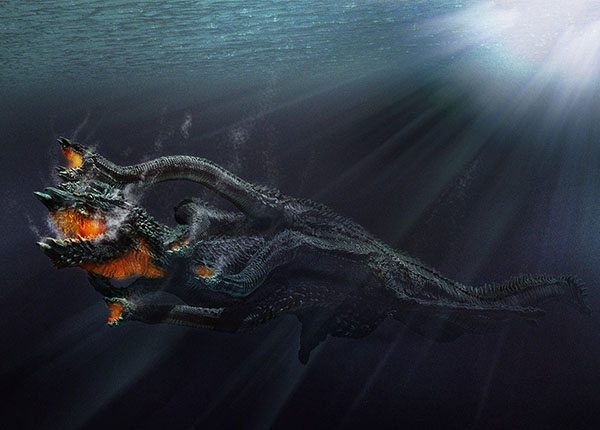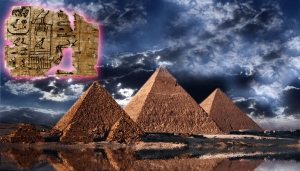“It makes the depths churn like a boiling cauldron and stirs up the sea like a pot of ointment.” – Job 41:31-32
Ancient texts are always a good source for finding clues about humanity’s forbidden history –if you learn to read between the lines. The good book is no exception.
To those with a rich imagination, the name Leviathan embraces multiple forms, a catastrophically large beast endowed with both strength and intelligence. In the Bible, the Leviathan is mentioned five times and while metaphoric in essence, these descriptions could be interpreted in a literal fashion and we’d have several reasons to suspect this was no mere creature, but an artificial craft built and operated by the gods themselves.
The first mention is in the book of Job, God’s most loyal and least favored servant. Or the victim of proving a point, if you will.
After breaking down and starting to feel pity for his painful life, Job curses the day he was born. He then invites other day-cursers to also curse his birthday:
May those who curse days curse that day, those who are ready to rouse Leviathan.” – Job 3:8
It seems that in the postdiluvian world Job lived in, the Leviathan still represented a great danger that came not without consequences. Although dangerous, Job sees the creature more like a latent peril, one that is out of sight but not out of mind.

Towards the end of his trials, Job has a discussion with God and the Leviathan motif is once again invoked:
“Can you pull in the Leviathan with a fishhook or tie down its tongue with a rope? Can you put a cord through its nose or pierce its jaw with a hook?” – Job 41:1-2
“Can you fill its hide with harpoons or its head with fishing spears? If you lay a hand on it, you will remember the struggle and never do it again! Any hope of subduing it is false; the mere sight of it is overpowering.” – Job 41:7-9
This description shows us the Leviathan was no mere animal made of flesh and bones. Although scholars have hypothesized the mythical Leviathan was actually a stylized version of the crocodile, certain verses seem to point otherwise.
“It makes the depths churn like a boiling cauldron and stirs up the sea like a pot of ointment. It leaves a glistening wake behind it; one would think the deep had white hair.” – Job 41:31-32
Interesting way to describe the movement a Leviathan made underwater. There are no animals with a body temperature high enough to boil water and leave a steamy wake behind them.
On the other hand, if we substitute the word leviathan with an unidentified flying object, the impenetrable armor and terrifying weapons make much more sense. To an ancient civilization with bronze tools, such a craft would undoubtedly considered the work of nothing less than a god.

As we know, UFOs also have aquatic capabilities and are regularly seen diving underwater or surfacing from the depths. Any water in contact with the exhaust of their propulsion systems would immediately turn to steam. To those who found themselves in the vicinity of a surfacing UFO, the depths would definitely look like a “boiling cauldron.”
Any primitive weapons would have absolutely no effect; most of our modern weapons would be rendered useless against an extraterrestrial force, let alone spears and arrows.
There is more biblical and apocryphal evidence to suggest the Leviathan could be ascribed an otherworldly nature. It was the creation of the Hebrew god YHWH (Yahweh), the same divinity that sent the fiery wheel after Ezekiel and punished the rebellious faction of the Nephilim for exposing mankind to forbidden knowledge.
Although Yahweh later became God and his worship transformed into Christianity (focusing on love as the primal creed), the god of the ancient Hebrews was vengeful and unforgiving. His actions are violent, his motives obscure, his hatred for other gods knows no bounds. Typical military chief behavior. If Yahweh was indeed the leader of a group of aliens who engineered mankind and ruled over Earth, it makes sense that his nature-defying creations would be artificial in nature. Leviathan, Behemoth, the glory of the Lord.
Metaphors and symbolism aside, the idea that gods were actually aliens has gained incredible traction these past decades and further scientific advances will surely cement it even further. Perhaps it will all become so clear when mankind’s first interplanetary pilgrims set foot on another planet and are greeted with burnt offerings by terrified natives.










